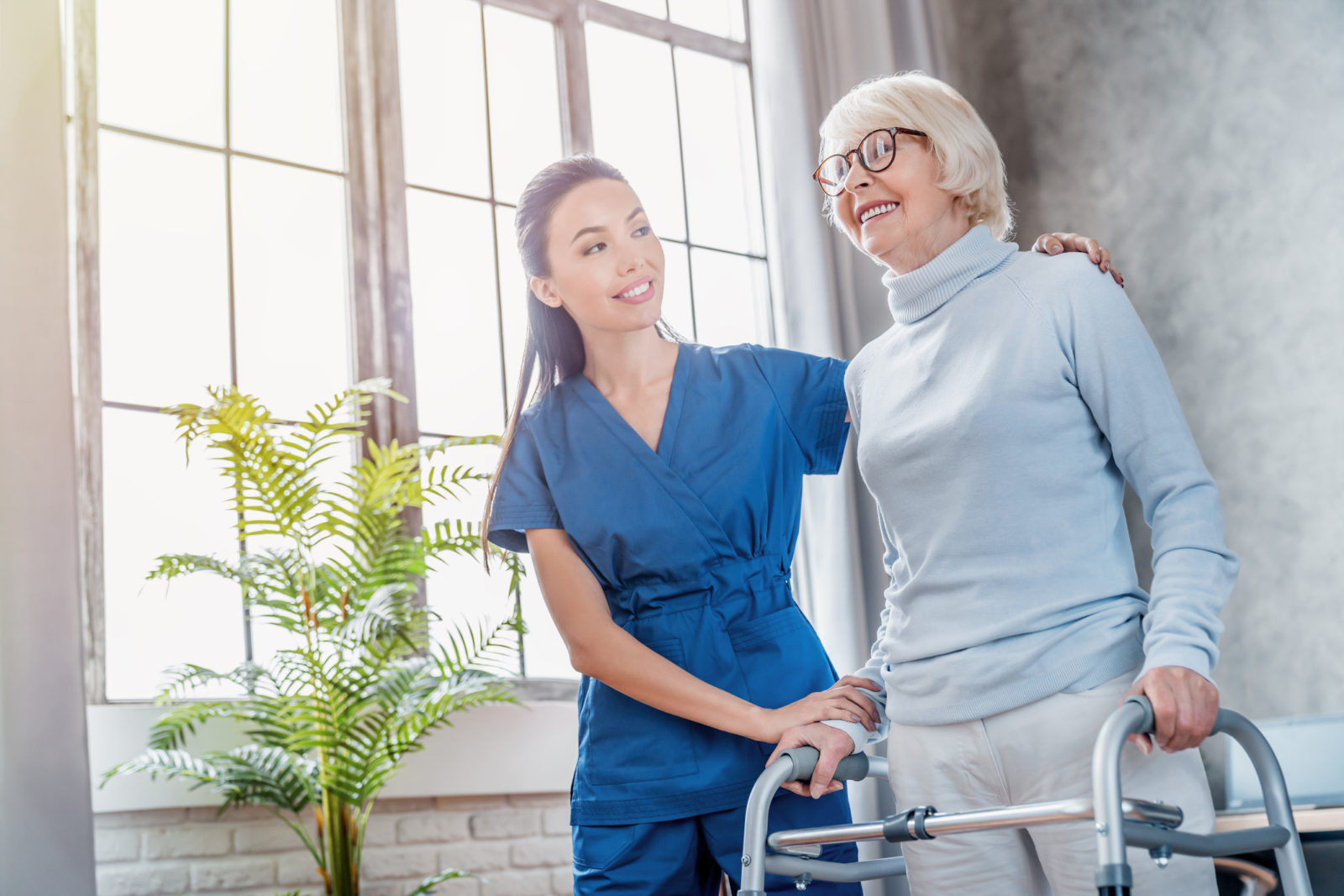What to Expect After a Stroke

Among the many patients we serve at Family Home Health are stroke survivors. Although stroke is a disease of the brain, it can affect the entire body. Our interdisciplinary team of nurses, aides, and therapists (physical, occupational, speech) helps patients recover at home according to their doctor’s orders.
There are two kinds of stroke. The most common, called ischemic stroke, is caused by a blood clot that blocks or plugs a blood vessel in the brain. The other kind of stroke, called hemorrhagic stroke, is caused by a blood vessel that breaks and bleeds into the brain.
Recovery time after a stroke is different for everyone—it can take weeks, months, or even years. Some people recover fully, but others have long-term or lifelong disabilities. Here is some information from the Centers for Disease Control and Prevention about stroke recovery.
Potential effects of a stroke
If you have had a stroke, you can make great progress in regaining your independence. However, some problems may continue:
- Paralysis (inability to move some parts of the body), weakness, or both on one side of the body
- Trouble with thinking, awareness, attention, learning, judgment, and memory
- Problems understanding or forming speech
- Trouble controlling or expressing emotions
- Numbness or strange sensations
- Pain in the hands and feet that worsens with movement and temperature changes
- Trouble with chewing and swallowing
- Problems with bladder and bowel control
- Depression
Stroke rehabilitation
Rehab can include working with speech, physical, and occupational therapists.
- Speech therapy helps people who have problems producing or understanding speech.
- Physical therapy uses exercises to help you relearn movement and coordination skills you may have lost because of the stroke.
- Occupational therapy focuses on improving daily activities, such as eating, drinking, dressing, bathing, reading, and writing.
Therapy and medicine may help with depression or other mental health conditions following a stroke. Joining a patient support group may help you adjust to life after a stroke. Talk with your health care team about local support groups, or check with an area medical center.
Support from family and friends can also help relieve fear and anxiety following a stroke. Let your loved ones know how you feel and what they can do to help you.
Preventing another stroke
Unfortunately, if you have had a stroke, you are at high risk for another stroke. About one in every four strokes happen to people who’ve had one before. And for those who have had an ischemic stroke, or a mini-stroke (also called a transient ischemic attack or TIA), the chance of having another stroke within 90 days may be as high as 17%, with the greatest risk during the first week.
That’s why it’s important to treat the causes of stroke, including heart disease, high blood pressure, atrial fibrillation (fast, irregular heartbeat), high cholesterol, and diabetes. Your doctor may prescribe you medicine or tell you to change your diet, exercise, or adopt other healthy lifestyle habits. Surgery may also be helpful in some cases.
![Family Home Health [logo]](https://www.familyhomehealthnetwork.com/wp-content/uploads/sites/250/2017/04/logo-new.png)